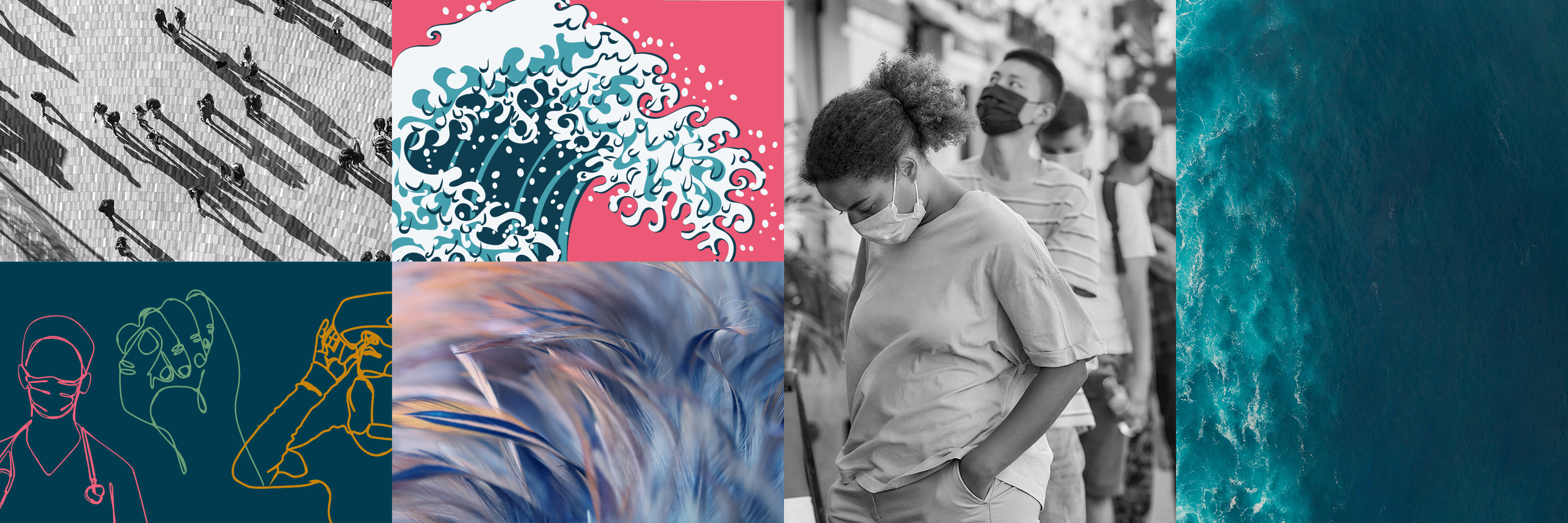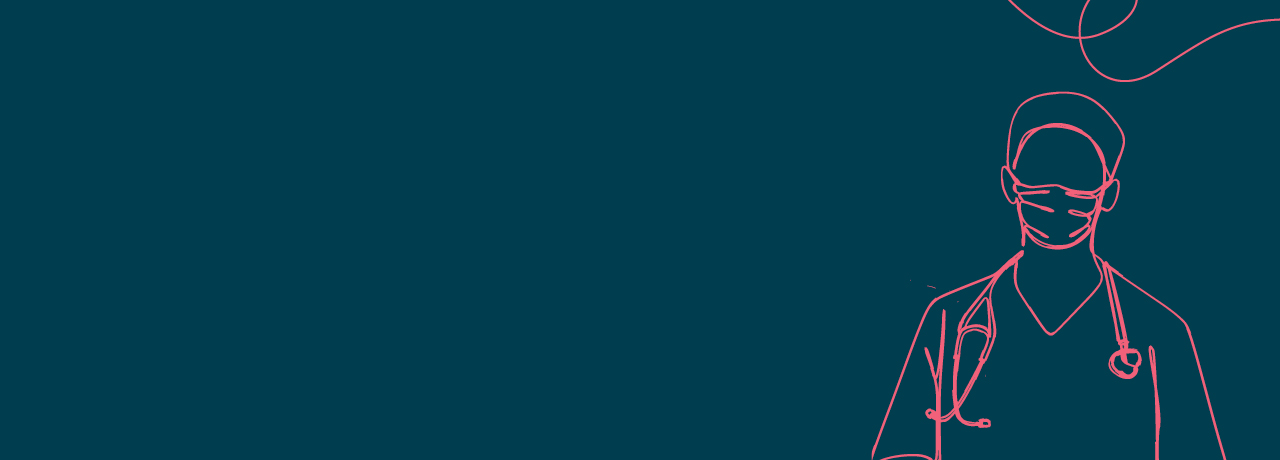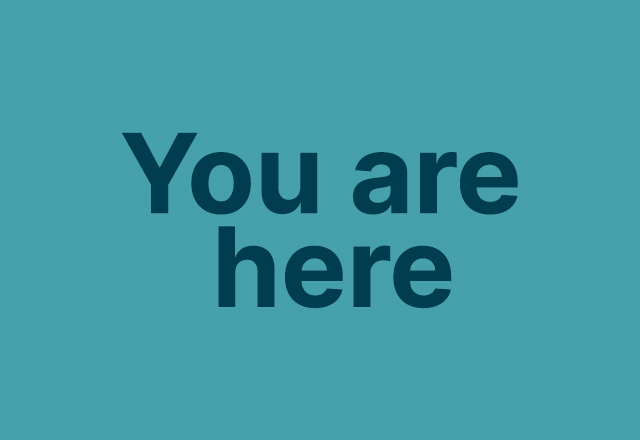Here we will look at how we are developing technology-based approaches to extend health information and care to communities grappling with health service shortages.


Principles: contributing to accessible, effective and equitable care
The pandemic has highlighted the fragility and inadequacy of healthcare systems around the globe, but particularly in remote, resource constrained and marginalized communities where health resources and infrastructure are lacking. COVID-19 showed it is those most vulnerable to health crises — frontline workers, communities of color, the incarcerated and the elderly — who often have the least in the way of protection and support.
The absence of accessible, affordable and adequate care for all is impossible to justify in a world of excessive wealth. This is especially true now, with technology providing ways to ease or overcome many common healthcare challenges, such as delivering services to remote areas or monitoring the condition of patients outside traditional healthcare settings.
It is clearer than ever that there’s a critical need to invest in and support healthcare in low-resource areas, and to deliver digital tools that allow information and infrastructure shortfalls to be addressed at scale. We are building on our long-standing partnerships with organizations and communities devoted to this need, amplifying their impact with our skills.
In practice
Technology has significant potential to promote healthcare equality, but only if it takes into account the needs of underserved communities, and conditions on the ground. Our projects in the field are defined by close collaboration with local organizations who deeply understand regional context as well as healthcare needs.
Bahmni: driving global health outcomes
Stemming from a single conversation with a non-profit hospital in rural India, Bahmni has blossomed into a powerful and versatile electronic medical record system (EMR) and hospital information system that is free, open source and built specifically for use in under-resourced environments. It is highly adaptable and intuitive, requiring minimal training, but still capable of performing and integrating sophisticated functions like generating overviews of patient data, capturing diagnoses, and managing laboratory and clinical workflows — on a variety of devices, and even without a reliable Internet connection.

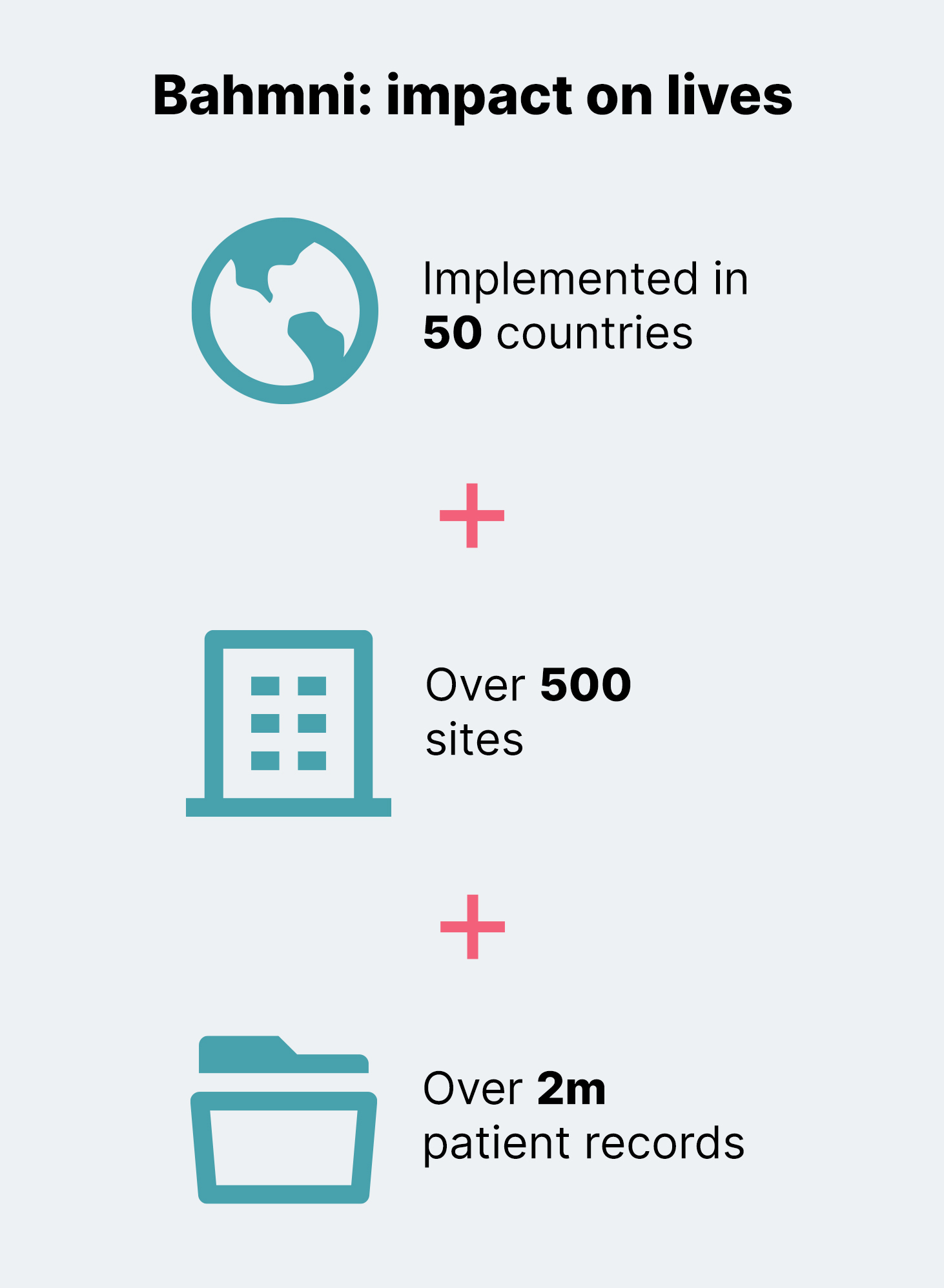
Having steered Bahmni through the early stages of development, we remain active in its evolution as a member of the Bahmni Coalition, and continue to contribute to its strategy, governance and development. Thoughtworks quickly established a global team to bolster Bahmni’s capabilities in response to the COVID-19 crisis. This involved adding features that would allow healthcare providers to track testing and treatment, and eventually to enable doctors to provide remote consultations. In April 2021, Bahmni was one of only a handful of projects recognized as a Digital Public Good by the Digital Public Goods Alliance. This UNICEF-endorsed initiative aims to accelerate progress toward the UN Sustainable Development Goals by highlighting open source tools that can be easily adopted by low and middle-income countries (1).
Providing critical infrastructure for payments and diagnoses
Around half the global population still lacks access to essential health services, and some 100 million people worldwide are at risk of falling into poverty due to health-related expenses (2). These problems are particularly acute in sub-Saharan Africa, where resources are strained and healthcare coverage sporadic.


The mTOMADY initiative led by the NGO Doctors for Madagascar explores the potential of digitalization to bridge access and financing gaps. Working with an international team of doctors, experts and volunteers, we helped develop the infrastructure backbone for a new healthcare-related payment system. mTOMADY provides patients a dedicated mobile wallet that, when topped up, is reserved exclusively for medical expenses, and that is accessible even in the most remote communities. The system also facilitates remuneration for healthcare workers. Since going live it has expanded to hundreds of health facilities and hospitals, and there are plans to bring it to more countries facing similar challenges, to reach a total of over 15 million people by 2025.
Sayu: connecting palliative caregivers
The palliative care unit at the Luis Calvo Mackenna Children’s Hospital in Chile faces the difficult task of making the final stage of life for terminally ill children as comfortable as possible. Communication between caregivers and healthcare practitioners is an essential part of improving the patient experience, and our social change lab teamed up with medical professionals at the hospital to create an app that would make this dialogue constant and seamless.
The Sayu app allows children’s caregivers to register pain and other symptoms while at home, and connect quickly and easily with hospital staff. It enables staff to access the medical records of children in real time, so they can adjust medication immediately. In addition to helping the hospital maintain and improve the app, we are working to make the code available to other institutions where it may be useful.


More healthcare projects
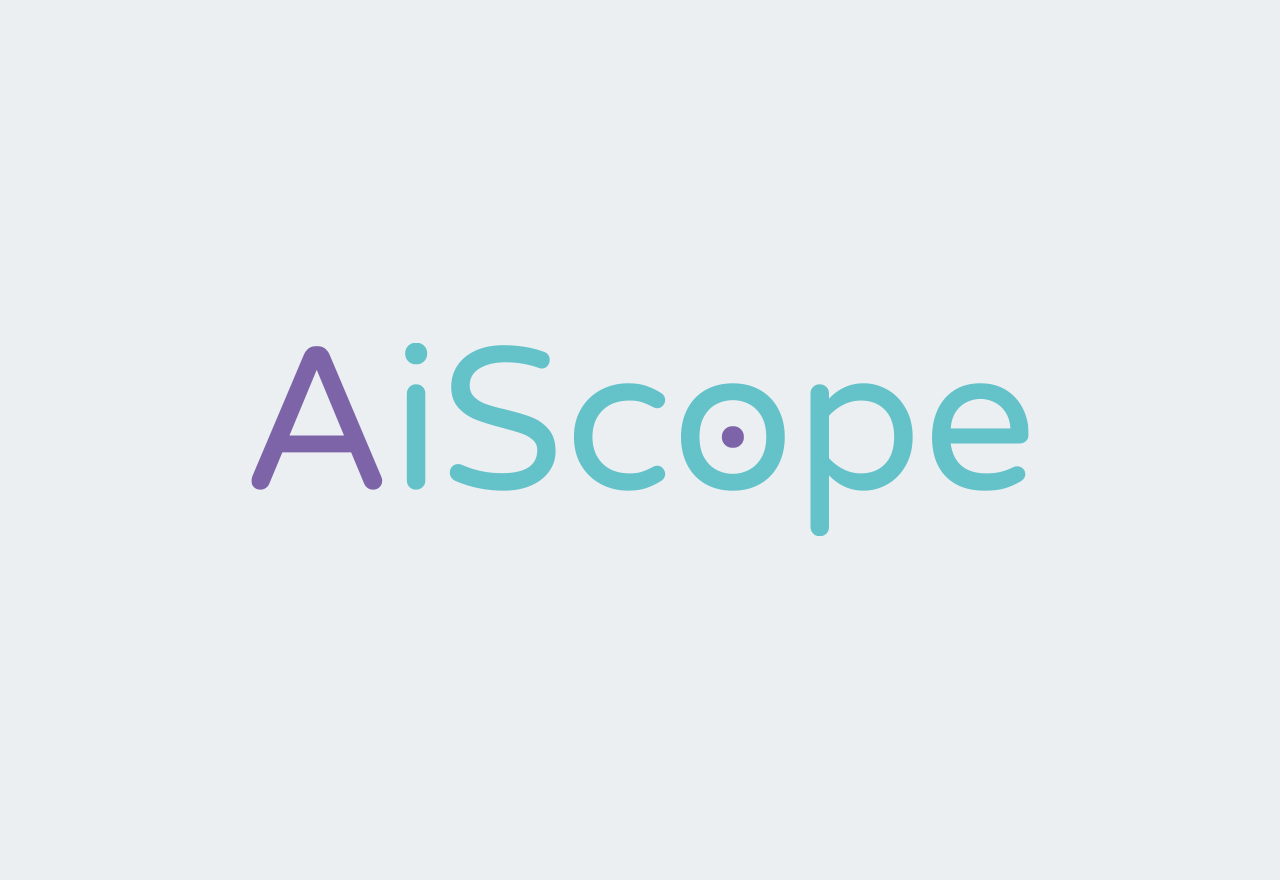
AiScope: an open source diagnostic tool
Members of our team are also actively involved in AiScope, a collective effort including thousands of scientists and technologists. AiScope is an open source diagnostic tool and data set to aid the diagnoses of infectious diseases like malaria that disproportionately affect the Global South.
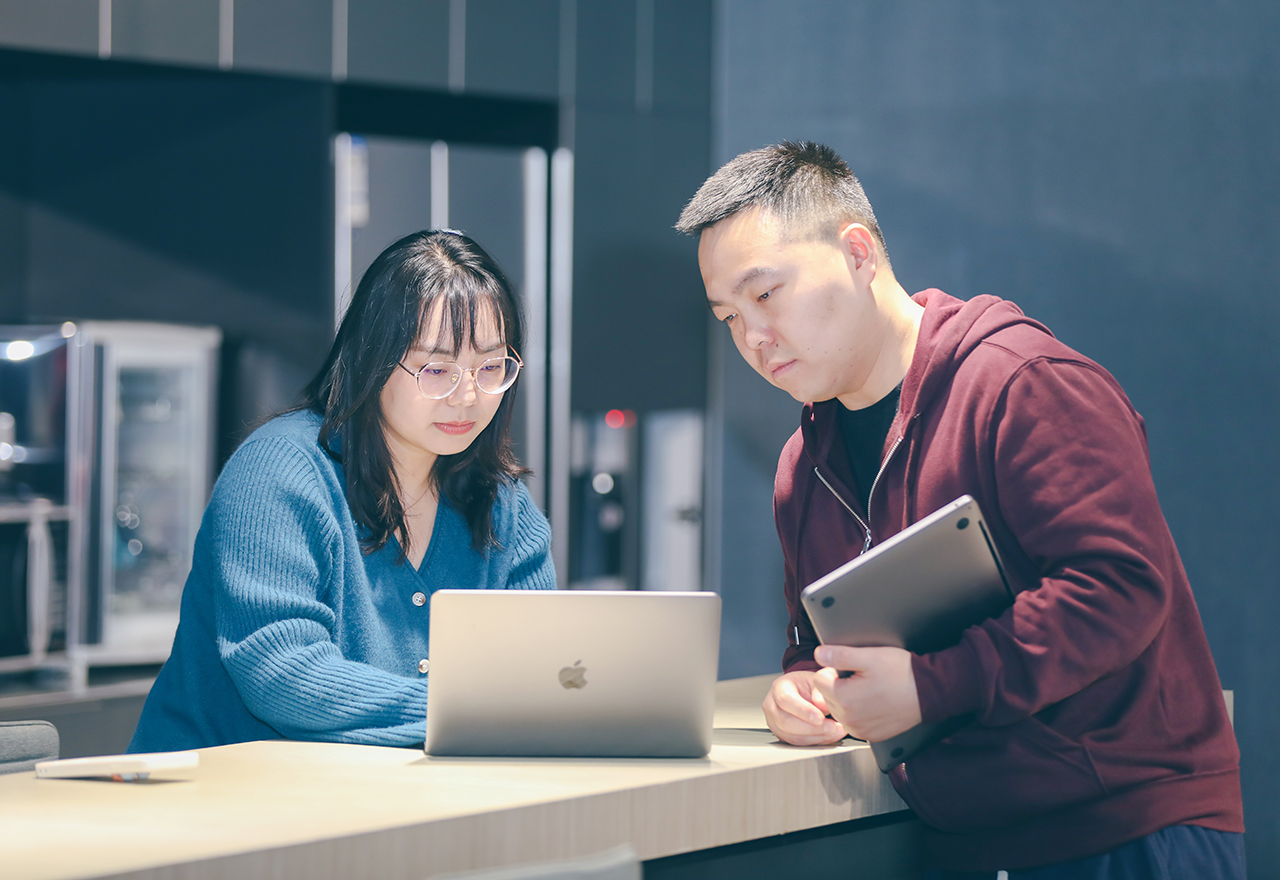
Enhancing care for children
In China we contine to partner with REAP and in 2020 our focus was on child nutrition. We created a tablet app for community health workers to deliver courses with, and an admin portal to manage it.
The road ahead
Across the focus areas and markets where we’re active, the journey out of the pandemic will create new challenges and imbalances that only collective efforts can address. We will continue to play an active role where we are most needed, and where we are best able to apply our expertise to create measurable outcomes, while remaining mindful that as technology assumes a greater role in society, it carries threats along with transformative potential. Our work will remain based on the principle of solidarity over charity — that true progress is made by listening to, and forging close-knit partnerships with the communities and people impacted by injustice and inequity, and empowering them to lead any response.
